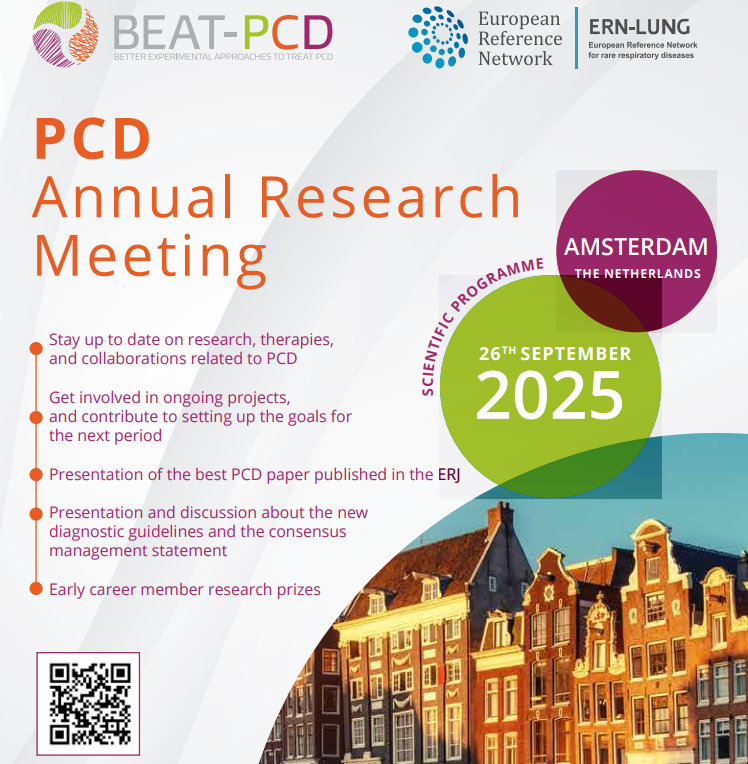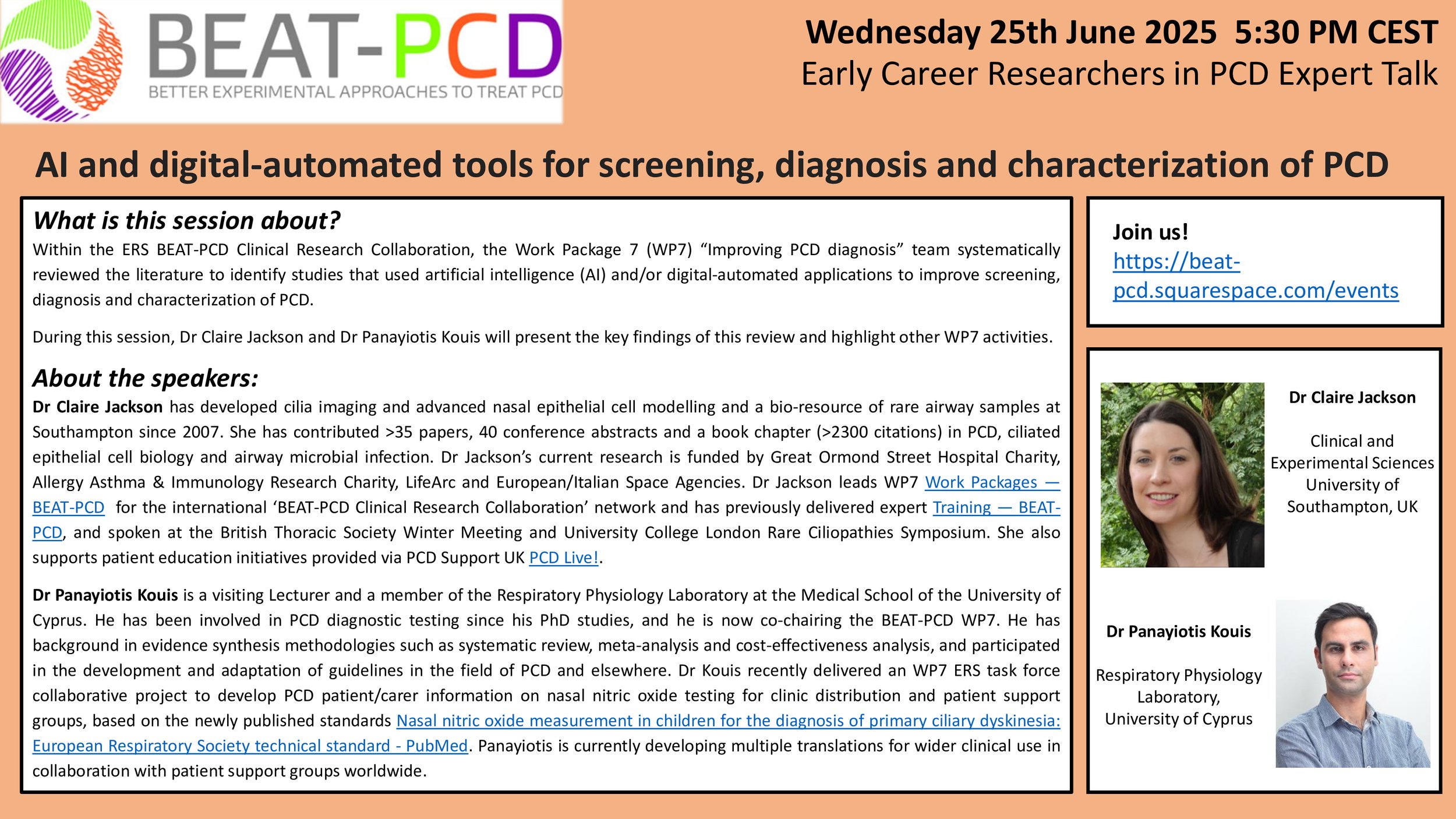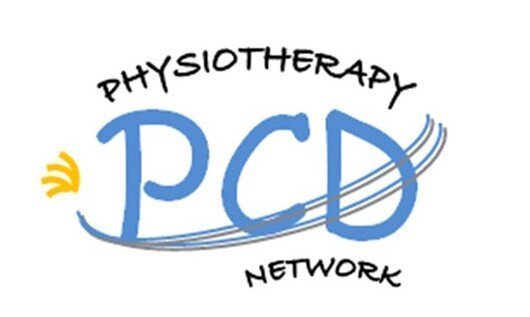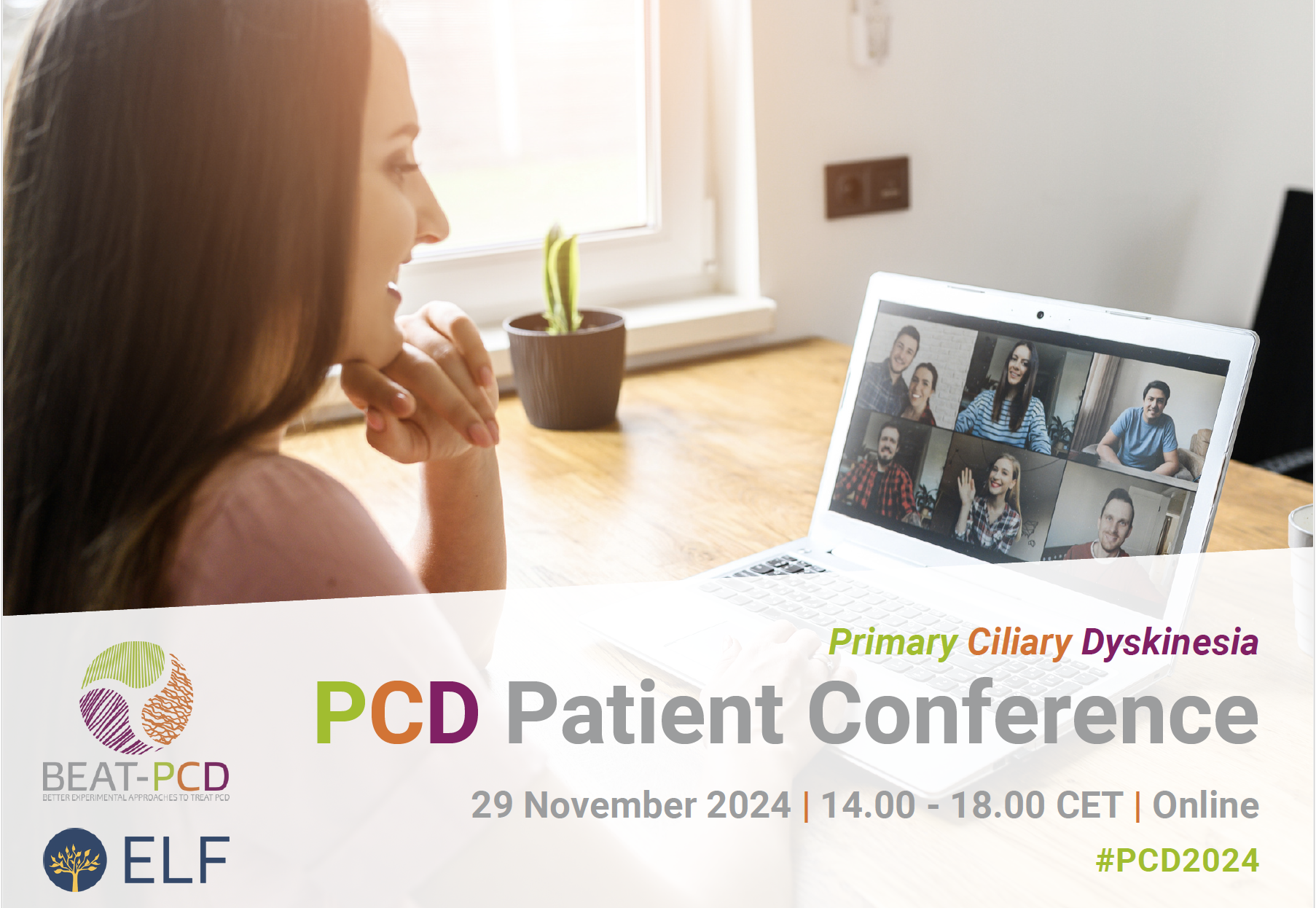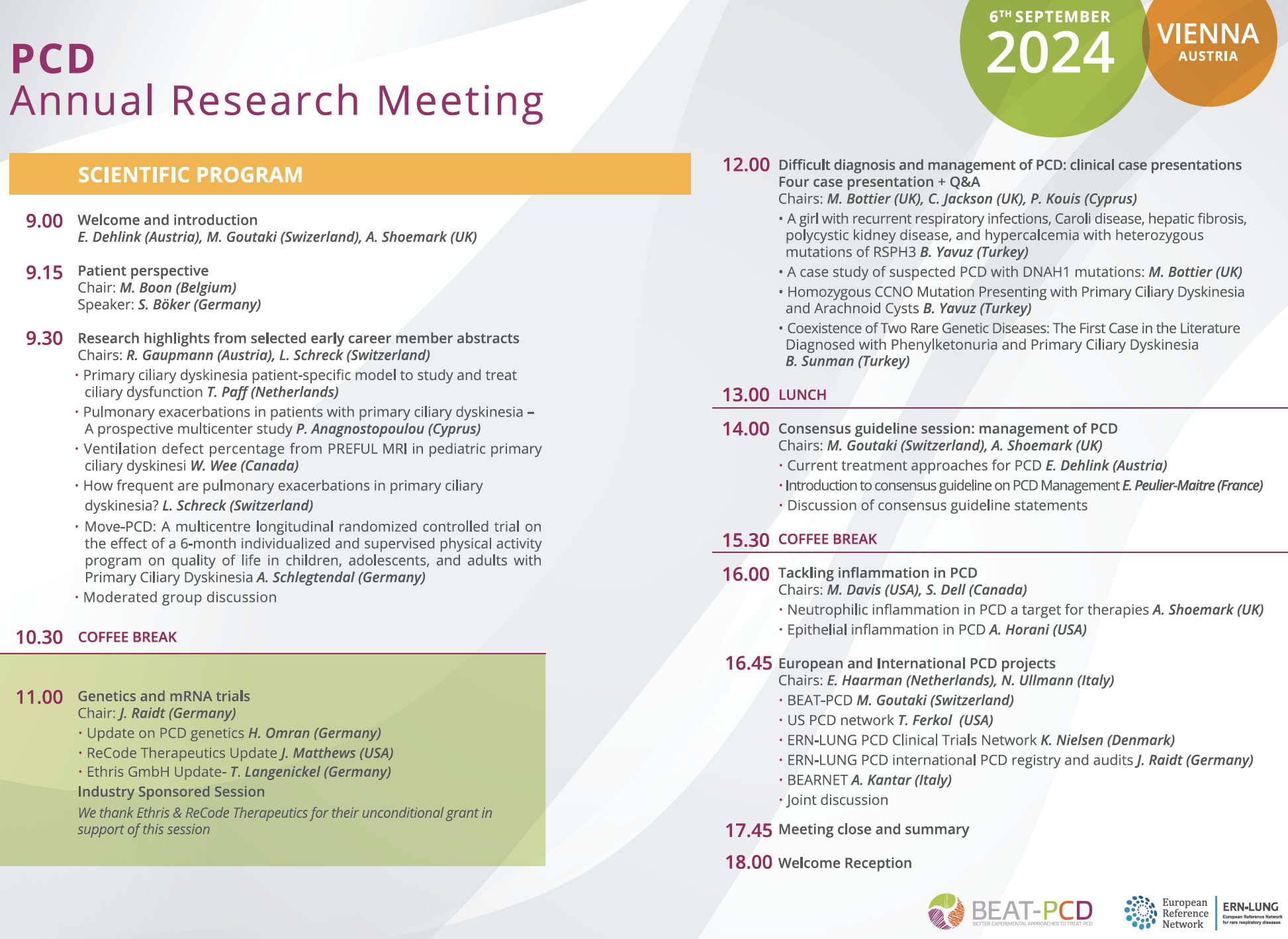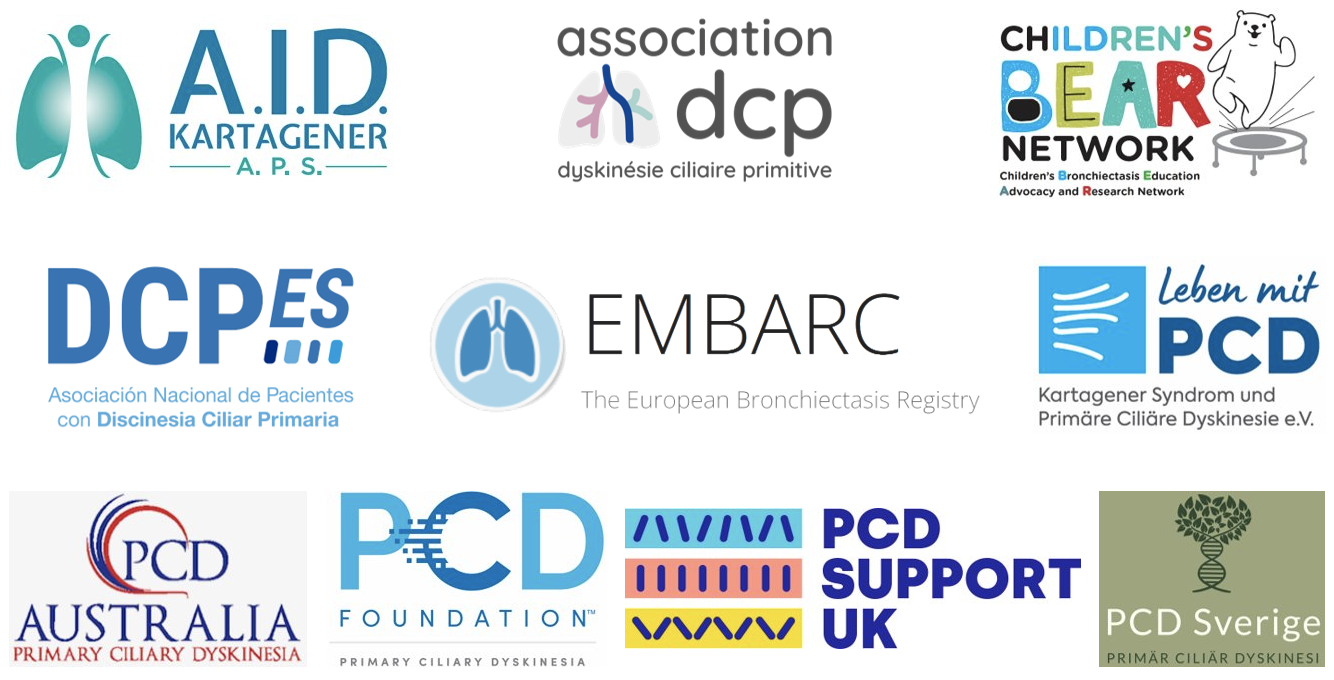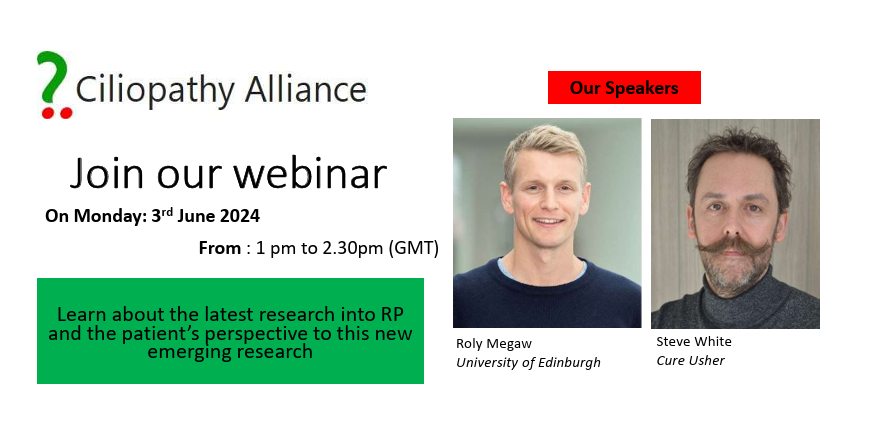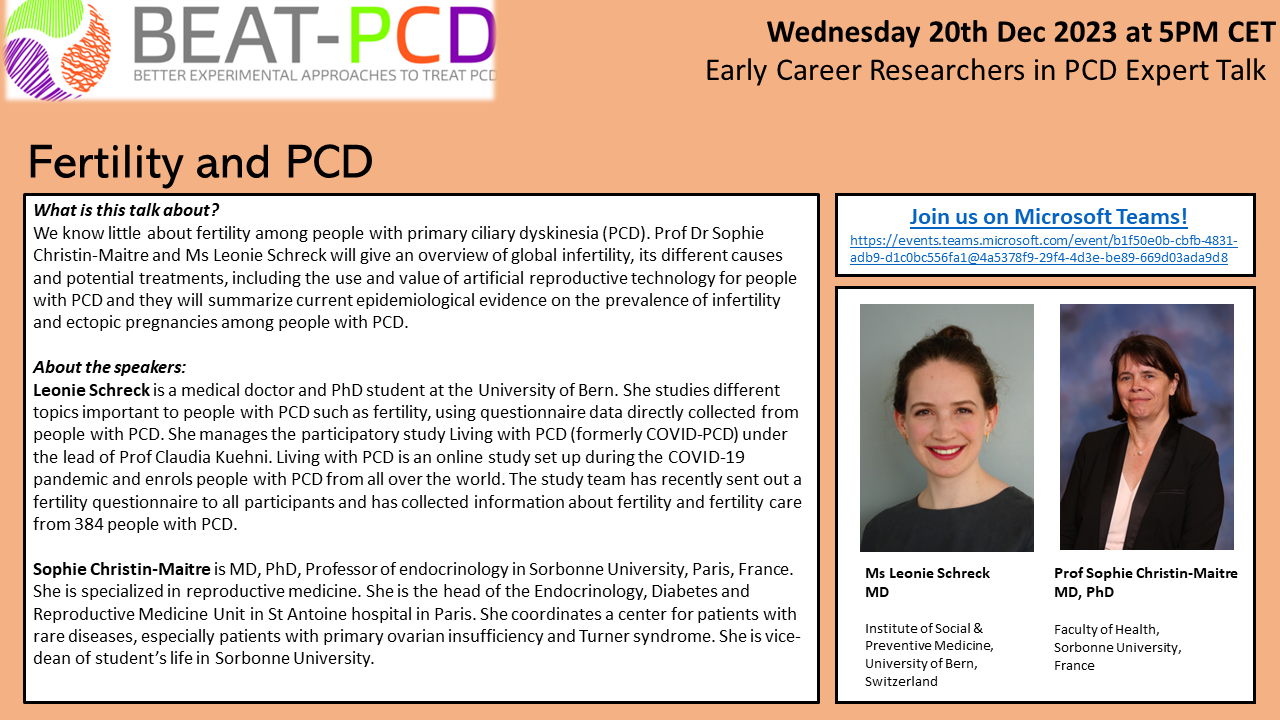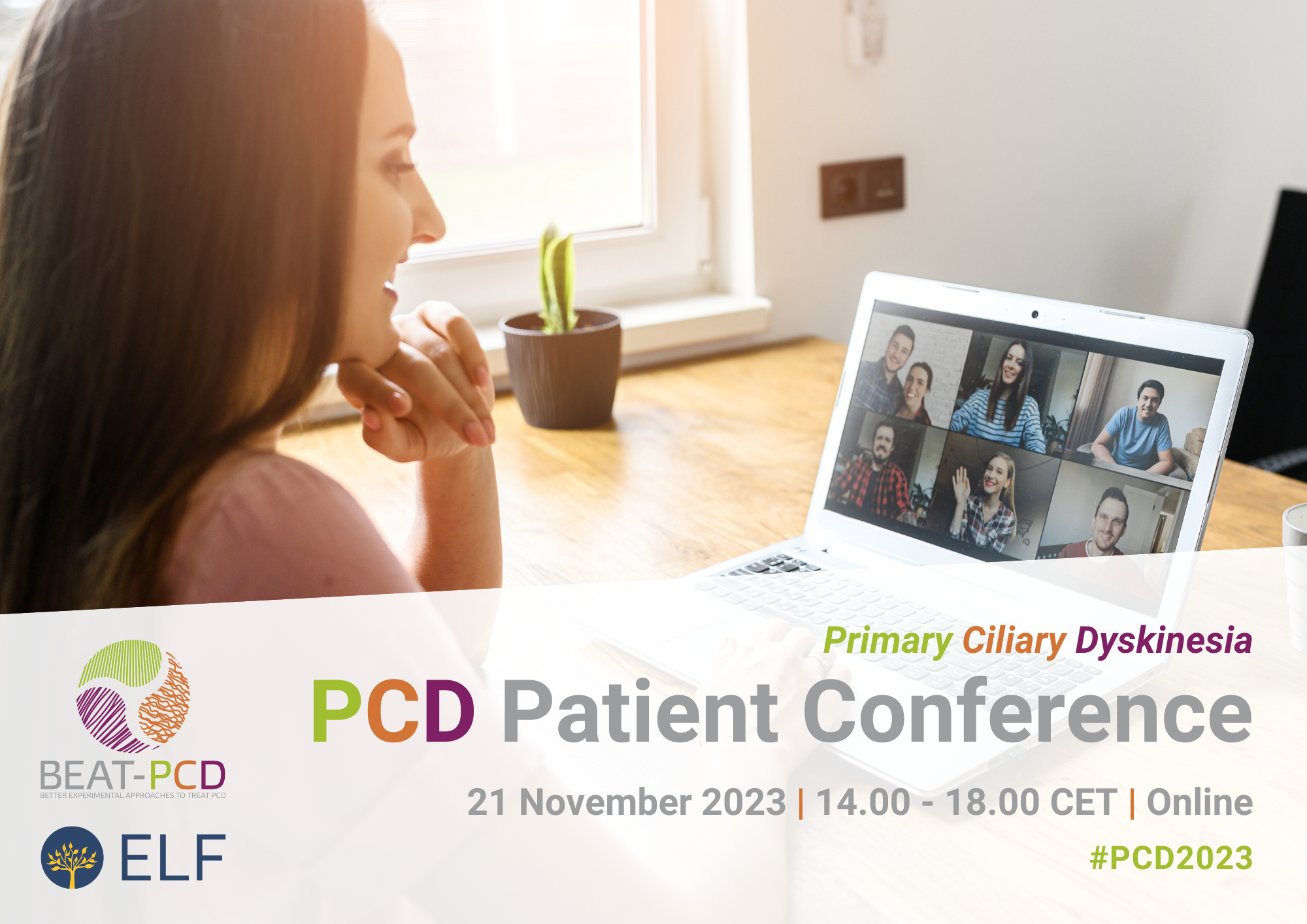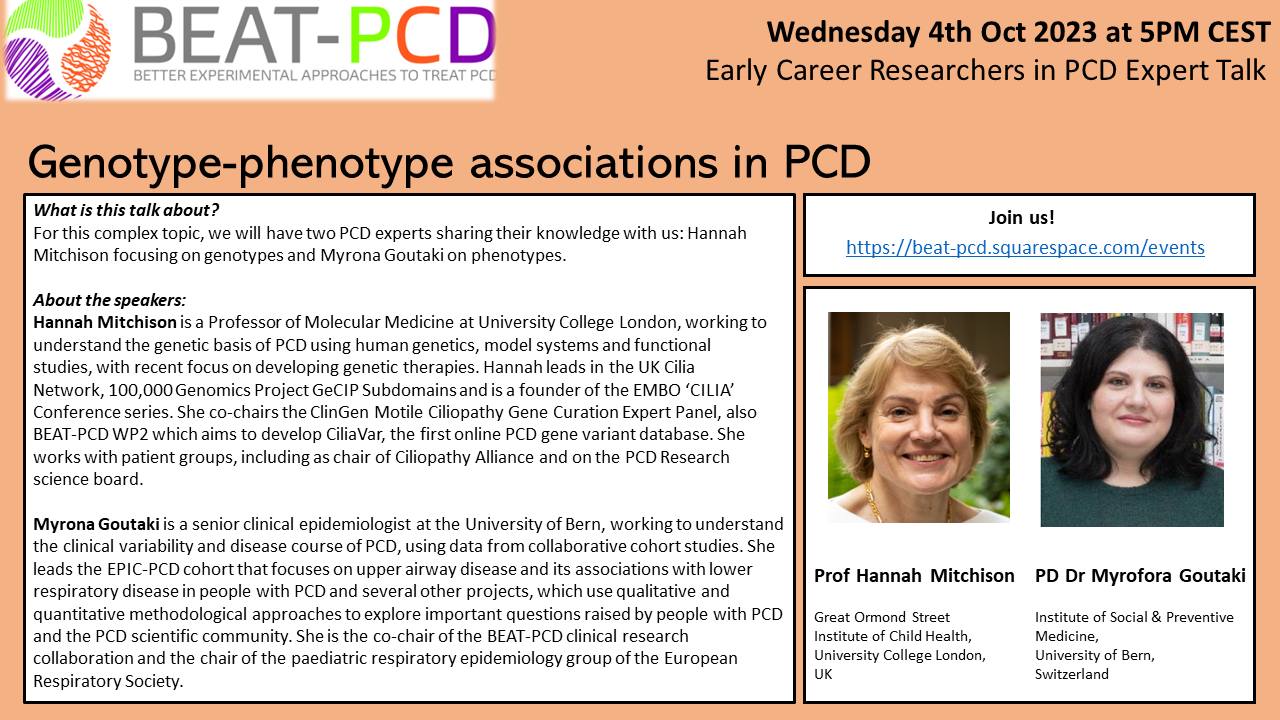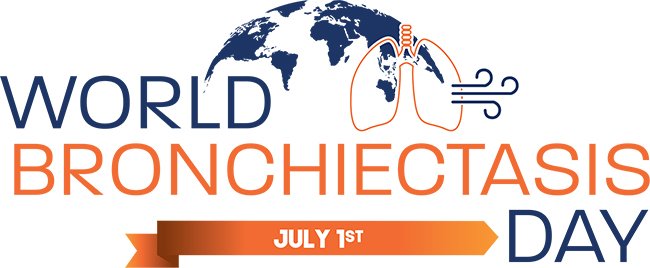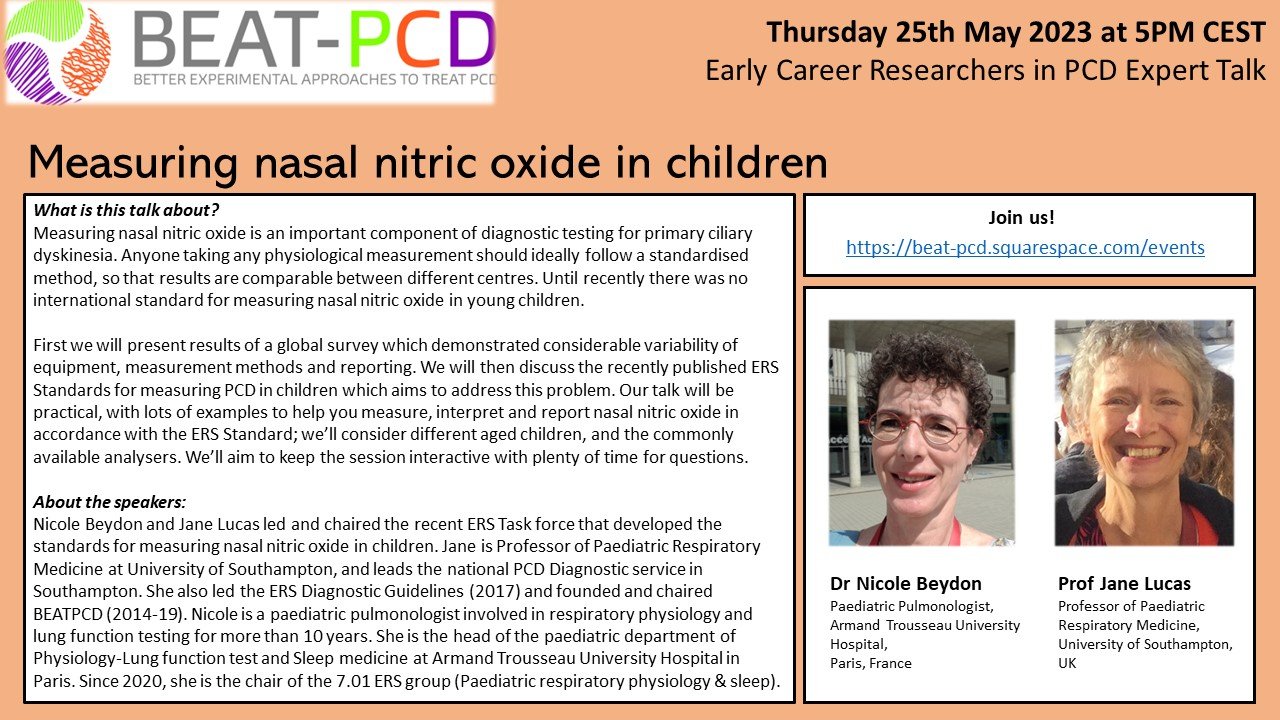PCD Annual Research Meeting 2025
The PCD Annual Research Meeting 2025 convenes researchers, clinicians, and healthcare professionals dedicated to Primary Ciliary Dyskinesia (PCD). Organized by BEAT-PCD and ERN-Lung, this meeting provides a valuable forum for sharing the latest advancements in PCD research, encompassing both fundamental science and clinical practice.
Registration
Registration for the PCD Annual Research Meeting 2025 is now open via our partner, Lena Events (click here to register)
The meeting will be followed by a social dinner. Reservations can be made on the registration page. Further details will be provided shortly before the event.
Program
The preliminary program is available here
How to reach the venue
The meeting will take place at: Amsterdam UMC – VUmc (Vrije Universiteit Medical Center) De Boelelaan 1117, 1081 HV Amsterdam – Amstel-Zaal room
The venue is easily accessible by public transport:
Tram: line 24 → stop De Boelelaan / VU
Bus: lines 62, 242, 341, 346, 348, 358 → stop De Boelelaan / VU
Metro: lines M50, M51, M52 → stop Amsterdam Zuid
For any help regarding the route to take to get to the Amsterdam UMC, we suggest you use the official website for public transport in the Netherlands: https://9292.nl/en/


